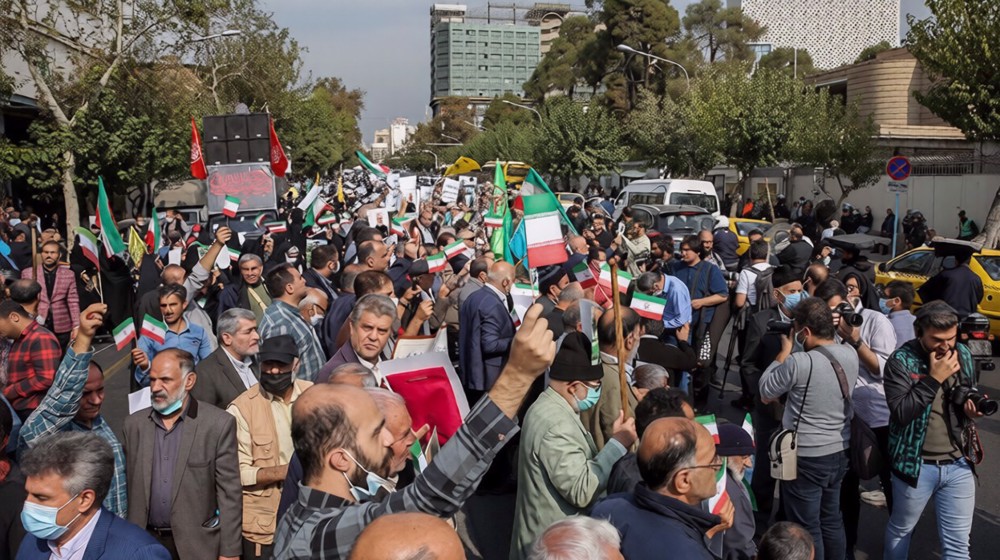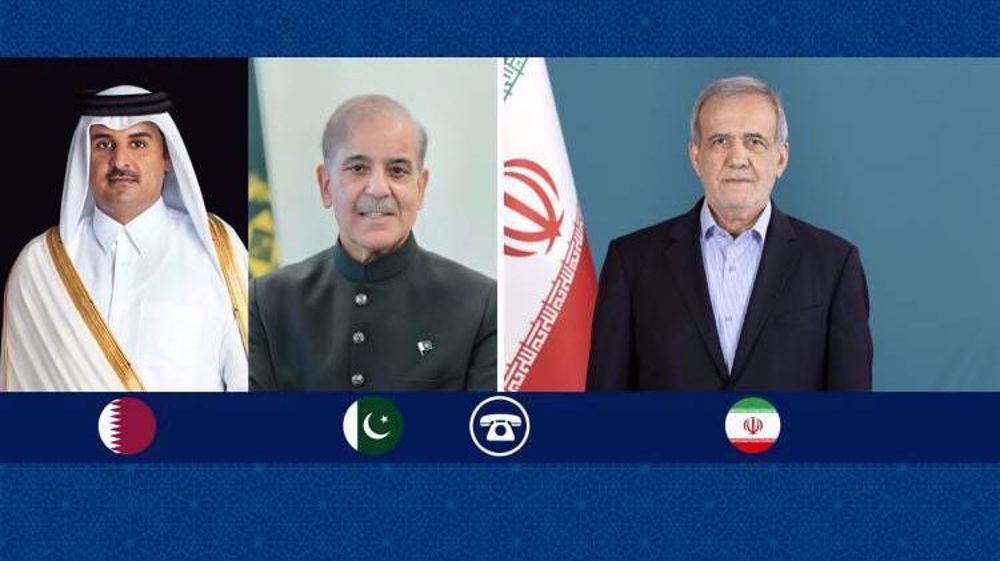German FM in Tehran, pledges no 'miracles' on JCPOA
German Foreign Minister Heiko Maas says his country remains firm in supporting the 2015 nuclear deal but can't pull off "miracles" in the face of US pressures on Iran.
Maas said in Tehran Monday that the UK, France and Germany -- the three European signatories of the Joint Comprehensive Plan of Action (JCPOA) -- planned to preserve the deal a year after the United States pulled out of it.
"The position of our three European countries is that we support the JCPOA and we want to continue our commitments but we can't pull off miracles," he said at a joint news conference with Iranian Foreign Minister Mohammad Javad Zarif.
He noted that Berlin, London and Paris were working to deliver the Instrument in Support of Trade Exchanges (INSTEX), a payment channel they unveiled in January to protect trade with Iran from harsh US economic sanctions.
After leaving the JCPOA last May, US President Donald Trump reimposed what he called "toughest ever" sanctions on Tehran and threatened to punish European firms that violated them.
Trump has promised that he will continue to implement the "maximum pressure" campaign until Iran agrees to renegotiate a deal that also addresses it ballistic missile program and curbs its regional influence.
Maas said America's departure prevented Iran from receiving the full benefits of the agreement but the European Union was doing its utmost to make it up to Tehran.
"Germany still supports the JCPOA and we believe Iran should be able to use its economic advantages," he said.
"We want Iran's trade and its economic growth to increase through INSTEX with Europe and it is Iran's right to enjoy the JCPOA's financial benefits."
Zarif: What's the point of negotiations with US?
Zarif said he made it clear to Maas in the meeting that implementing the JCPOA was all he expected the Europeans to do.
Referring to calls on Iran by the West to sit down for direct talks with the US, Zarif said Washington's approach to the nuclear deal was proof that there was no point in talks.
"First of all, we have this agreement that is the outcome of two years of compact negations and 12 years of diplomatic work," he noted. "Have they implemented this one that now they expect talks on other issues?"
"They should first show us that negotiations with the US will have a benefit and then ask for talks," he continued.
Zarif also rejected US claims that it was destabilizing the region.
"Who is causing instability in this region? Did we give Saddam Hussain weapons? Did we back al-Qaeda? Did we imprison the Lebanese prime minister?
"Is it us who are bombing civilians in Yemen every day? Did we support Daesh and al-Nusra or were they American weapons that Saudi Arabia gave them?" he said.
Maas touched down in Tehran on Monday, 30 days into a two-month ultimatum Iran gave the Europeans to meet their end of the bargain and protect the deal in the face of immense US pressure.
The German FM would meet President Hassan Rouhani later in the day before ending his one-day visit.
Hamas blasts Western media for blindly defending false Israeli narrative
ElBaradei condemns US threats of military action against Iran
‘No two-hour war’: Iran vows immediate retaliation to any attack
VIDEO | US warmongering threatens stability
Pezeshkian: US must end provocations if it seeks genuine diplomacy
Iran summons German ambassador over Merz’s ‘low-minded’ remarks
Iran's Armed Forces warn EU of ‘consequences’ of IRGC designation
Iran FM: EU’s blacklisting of IRGC a ‘major strategic mistake’










 This makes it easy to access the Press TV website
This makes it easy to access the Press TV website